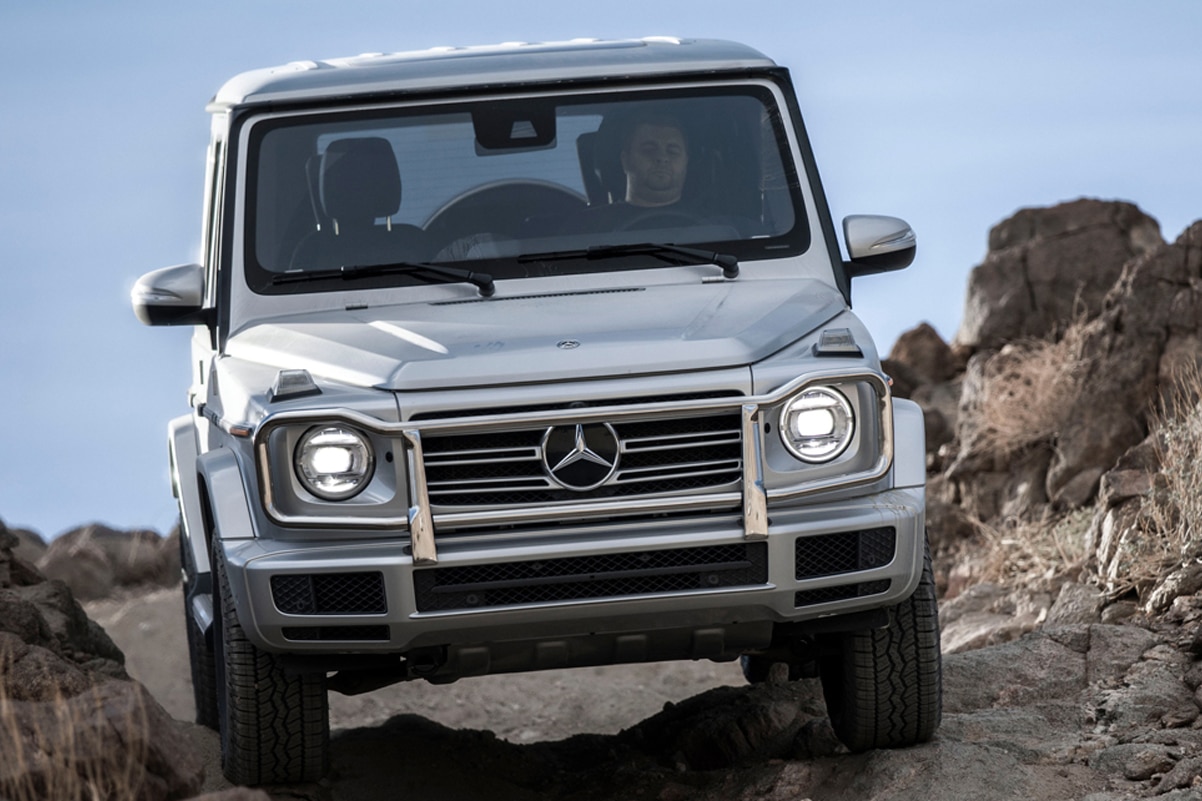The Psychology of Why Off-Road SUVs Are So Popular
Knowing that you can do something—even when you know you won’t—is often enough reason to buy a specific vehicle.
 Mercedes-Benz
Mercedes-Benz
All cars are drag costumes that drivers put on and take off in order to toy with perception, to undermine or underscore norms, or to communicate to the world, and to themselves, who they are and how they want to be seen. This is why vehicular purchases so often transcend the rational.
“When we talk about how people make decisions, it’s all about value-centered psychology,” says Alexander Edwards, president of Strategic Vision, an automotive research and consulting firm that conducts hundreds of thousands of in-depth psychographic surveys with new-car buyers every year. At the root of these decisions, according to Edwards, are the baseline needs of security, trust, and reliability. Because of the relentless improvement in automotive construction and components over the past 135 years, nearly all new cars now meet these needs. So consumers are seeking vehicles with traits that play into or supplement their desire for esteem—traits such as excitement, fun, and prestige.
Rugged Style is a Form of Self-Expression
At this moment, in America, the rugged, go-anywhere characteristics of trucks, SUVs, and crossovers overwhelmingly meet this desire. These utility vehicles (along with their van counterparts) now comprise more than three out of four new automotive purchases, and their hold continues to metastasize. While full-size trucks have been the best-selling models in the U.S. for years, hardcore models like Ford F-150 Raptor, Ram 1500 TRX, and Chevrolet Silverado ZR2 have elevated the pickup truck’s cultural cachet. Sports cars and luxury cars have been replaced by vehicles like the Ford Bronco Raptor, Jeep Wrangler Rubicon, and Mercedes-Benz G-Wagen as the popular form of automotive self-expression.
According to Edwards, buyers of trucks and SUVs fall into two core categories. There are those who purchase them to complement their current needs—that is, those who live in areas with rugged terrain or consistently challenging weather or who travel off-road for work or pleasure frequently. And then there are those whose situation or lifestyle doesn’t require such a vehicle but whose self-concept is fulfilled by the idea that, if they wanted to or were presented with the opportunity, they could utilize it in such a way.
The Thought Process Behind the Feeling
“The thought process is, if I want to be proud of myself, and part of the way I imagine that is through the ideas of freedom—being able to go anywhere, do anything—and I happen to be someone who is tied to a job or family where I have so much responsibility, I can’t actualize it,” Edwards explains. “By purchasing the SUV and having that capability, that fills that emotional deficit or gap that I’m having. It says, ‘I still am this person, even if I’m not doing it.’”
Apparently, this group makes up a much larger share of the SUV demographic than needs-based owners. According to Strategic Vision’s survey data, 98% of all SUV and crossover buyers drive off-road over rocks or in mud at most once per year, if ever, and 91% drive on dirt or gravel but one time a year or not at all. And yet, from a psychological perspective, the idea of such capability is magnetic.
That’s particularly true right now, when COVID-19 has made people reevaluate what they need out of their vehicles. According to Edwards, “Whereas esteem in the automotive market up until recently has been about luxury, tech, and safety features, it now is—especially coming out of the pandemic—about being able to go where you want to go.”
Armed conflicts abroad and at home have only strengthened these feelings. “We see consumers noting the political unrest in the world and saying, ‘We need to be ready and capable for anything,’” Edwards says. “There’s a political component to it that you might celebrate or react to with disdain. But it is a real thing. There are people who say, ‘I need [an off-roader] because I don’t know what the future holds.’”
Nostalgia also plays into these purchases. “As the new Defender came back, as the Bronco came back, people were saying, ‘Oh my gosh, my dad, my grandfather, my older brother, my uncle all had this vehicle when they were younger, and I loved driving in it,’” Edwards says. “‘And I’m now going to have that same experience so I can share that with others.’ We know that’s a real thing as well.”
Perhaps most striking is the kind of vehicles that people are trading in so they can purchase these off-road-ready vehicles. “I had to write an internal memo noting that some BMW X5 buyers disposed of their cars and bought Ram 1500s,” Edwards says. “That’s really weird behavior. But this trend is consuming everything from your Honda Accords to your BMW 5-series and Mercedes E-classes.”
While the general trends and exigencies leading buyers toward SUVs are unlikely to abate, some consumers might soon find other outlets to fulfill their desire to conquer, control, or escape. “It’s going to slow a little bit as people are able to do things in a post-pandemic world,” says Edwards. “For example, the person who buys a Wrangler so they can—or imagine they can—go to Yosemite and drive on some out-of-the-way terrain? Next year, they’ll be able to go to France. And that will be the way they actualize their need to escape.”
Written by humans.
Edited by humans.
 Brett Berk
Brett BerkBrett Berk is a New York City-based writer who covers the intersection of cars and culture: art, architecture, books, fashion, film, politics, television. His writing appears regularly in top-tier automotive and lifestyle publications.
Related articles
View more related articles